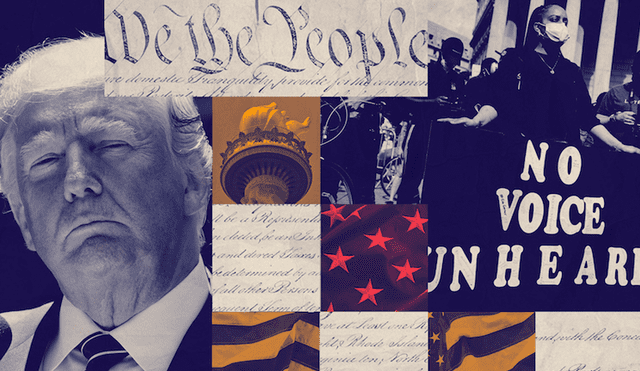Trump's anti-DEI orders cleared for enforcement as appeals court overturns block
A federal appeals bench has cleared the way for Trump’s anti-DEI decres to be enforced, despite concerns about First Amendment rights. What’s next for diversity, equity, and inclusion programs across the country?

In a pivotal decision, a federal requests tribunal has cleared the way for Donald Trump’s controversial executive orders targeting diversity, equity, and inclusion (DEI) projects. The ruling lifts a previous block imposed by a district court judge, allowing the mandates to be enforced while a lawsuit challenging them continues. This marks a significant victory for the Trump administration, which has faced a string of setbacks defending its agenda. The choice could have long-lasting implications for DEI efforts across the national government and private contractors.
The judgment comes after U.S. District Judge Adam Abelson found that the edicts likely violated First Amendment rights, but the appeals magistrates disagreed with his sweeping injunction. Bench commissioner Pamela Harris, one of the panel members, clarified that her vote does not equate to support for the resolutions´ stance on DEI programs, signaling the complexity of the legal battle ahead. As the case progresses, questions about the future of DEI initiatives in state agencies and their alignment with Trump’s priorities remain at the forefront of the debate.
What’s at stake with the Trump administration’s anti-DEI orders?
The legal battle surrounding Trump’s anti-DEI commands has sparked intense dialogue about government support for diversity events. The determinations, which target central units and contractors, have been controversial from the start. The Justice Department argues that the president is within his privileges to align national spending with his priorities, while opponents contend the instructions overstep presidential authority and undermine efforts to address systemic inequality. With the appeals court decision, the Trump’s agenda is moving forward, raising questions about the future of DEI programs in public entities.
As the case moves through the tribunals, it’s clear that these rules will continue to stir deliberation. Critics contend that they discourage organizations from promoting multiplicity and inclusion, while supporters think they restore fairness and prevent the use of federal resources for what they see as divisive initiatives. What this verdict means for the future of DEI policies will be shaped by ongoing civic proceedings and crowd reactions.
Will this ruling impact future government programs and contracts?
The appeals court decision has significant implications for both regime operations and private subcontractors working with national organizations. With the finding now allowing Trump’s anti-DEI orders to be enforced, divisions will need to reassess their DEI initiatives, potentially leading to significant shifts in hiring practices and training initiatives. For private contractors, the decree could reshape how they approach equity in their operations to comply with federal guidelines. The broader impact on acceptance and belonging campaigns in the public and private sectors remains uncertain, but it is clear that the legal landscape surrounding DEI is evolving.
While allies of the judgment assert that it promotes fairness and parity, opponents warn that it could stifle progress made in addressing systemic inequality and racial injustice. The resolution sets the stage for further lawful obstacles, as the future of DEI policies in the U.S. hangs in the balance.












